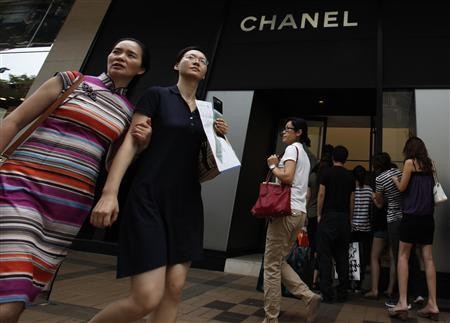A lot of high-end fashion labels are still thinking twice on whether to adopt e-commerce or not, despite the fact that shoppers all over the world are showing eagerness in purchasing items online, Shanghai's China Business News reported.
To position themselves differently, many international luxury brands conform to the idea that high-end fashion must have their own distinctive sales strategies. They believe that e-commerce is not aligned with the industry marketing models that they have, according to the report.
Luxury brands see the difficulty in adapting to e-commerce, as the e-commerce channels would disrupt production and sales timetables, said the report.
Online store inventories would put pressure on limited stocks, and sales cycles might become altered from the stable growth obtained from these brands to more irregular patterns throughout the year.
Security issues also come with online shipping, as the items may get lost or damaged during shipping. Another concern is the possibility of the items getting swapped and traded illegally, while customers receive counterfeit items, the report added.
Exchange rates and varying tariffs also make it difficult to control pricing between different countries. High-end labels are usually sold at varying prices around the globe, which may seem less feasible with e-commerce stores.
The closest e-commerce effort of luxury brands would be during promotional sales. Many high-end brands conduct flash sales on Amazon and other online-selling platforms. A source said that this is a way for brands to do clearance on their stocks.
Brands usually release a product pre-season and sell it at a reduced price during the season. For example, if there would be a new pair of summer shoes to be launched in March, there might be a 20-percent discount in July, and up to 50-percent discount in August. When the season is over, the pair of shoes end up in a store outlet. Flash sales make clearance easier and remove the need for warehousing.
Many luxury brand giants use their own in-house logistics for delivering their merchandise. However, Chanel and Prada place the courier's name on the package instead of their brands, and they wrap the item in three layers.
Savvy buyers who buy goods online can pick their trusted delivery company if they are uncomfortable with unpopular logistics firms.
Through the years, luxury brands have established their reputation as both high fashion and highly flexible to new trends in technology as part of their overall sales strategy. E-commerce is just the same; customers can buy their favorite items at lower costs and in a shorter delivery time.
According to GachouchaKretz, luxury brands marketing professor at Institut Superieur de Commerce de Paris, e-commerce can bring a substantial improvement in the high-end sector.



























